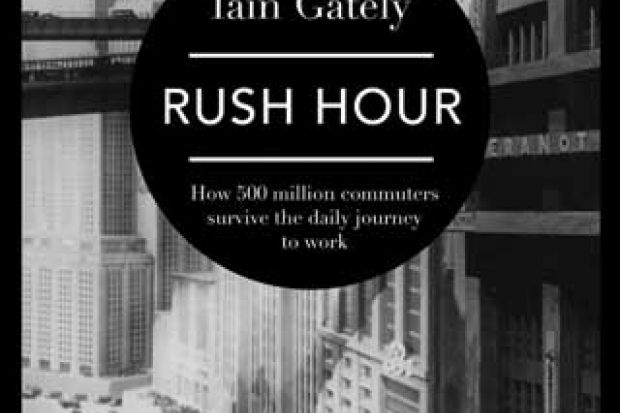Sir David Bell, vice-chancellor, University of Reading, is reading Iain Gately’s Rush Hour: How 500 Million Commuters Survive the Daily Journey to Work (Head of Zeus, 2014). “Having been a long-distance commuter, I enjoyed Gately’s book, which includes little gems such as why the British have always been silent commuters; all to do with class, apparently. Counter-intuitively, he believes that commuting is a good thing. It signifies social progress, as people have used their freedom to travel to better themselves. Worth remembering as you sit fuming on the delayed 7.14am from Leeds to York.”

Sir David Eastwood, vice-chancellor, University of Birmingham, is reading Roger Bannister’s Twin Tracks: The Autobiography (The Robson Press, 2014). “It’s no doubt curious to live with much of the world knowing what you did with 3 minutes and 59 seconds of your life, but being hazy about much of the rest of it. This warm and nicely observed autobiography retells the story of Bannister’s spectacular career as an athlete and as a leader of UK sport. His achievements as a doctor, a clinical researcher and an academic leader are given equal weight. What shines through is a man of humanity and rare talent, and a life generously lived.”

Sandra Leaton Gray, senior lecturer in education, UCL Institute of Education, is reading Liz Trenow’s The Forgotten Seamstress (Avon, 2014). “This intriguing tale is based on the idea of a patchwork quilt as the central character, and a research project seeking to uncover the mystery surrounding it. The author must be commended for her bravery in starting the book with two pages of ethical approval paperwork, which oddly enough seems to work in setting the tone.”

Jon May, professor of psychology, Plymouth University, has just finished reading Karen Joy Fowler’s We Are All Completely Beside Ourselves (Serpent’s Tail, 2014). “A cautionary tale for academics with children, especially psychologists like my wife and me, this novel shows what happens when intellectual enquiry intrudes into family life. The science is spot on, and the politics convincing. Readers are obliged not to reveal the neat plot device that makes this book something special, so you will have to read it yourself.”

Juan C. Moreno-Cabrera, professor of linguistics, Autonomous University of Madrid, Spain, is reading Pablo Domínguez’s Concise Pun-ishing Dictionary for English Speakers (Agencia del ISBN, 2014). “I was thrilled to have the chance to read this witty and hilarious dictionary, an inextinguishable source of intellectual pleasure. The entries and definitions stir the linguistic imagination in such a way that I think I will never ‘funish’ reading it. This book is an absolute must-read that I’m sure will delight English speakers, and especially lovers of wordplay.”

